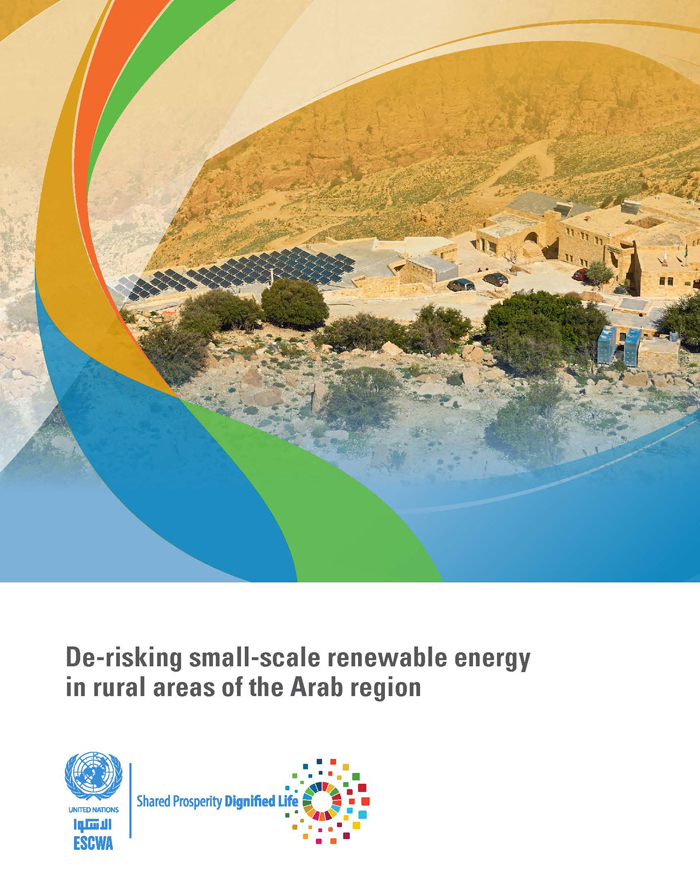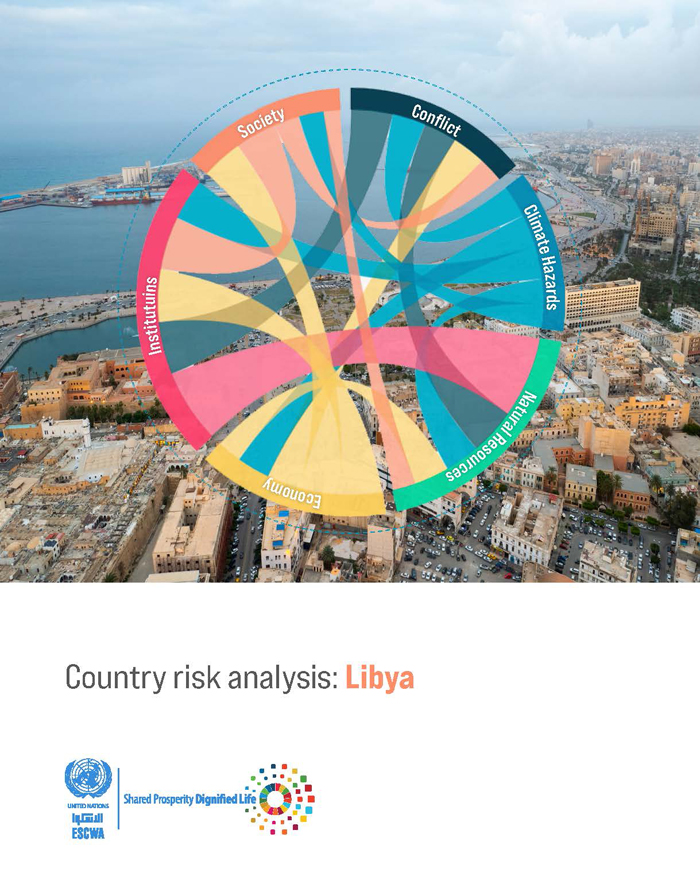
ESCWA Publication: ESCWA/CL1.CCS/2021/POLICY BRIEF.1
Country: Arab region
Publication Type: Policy briefs
Cluster: Climate Change and Natural Resource Sustainability
Focus Area: Climate change
Initiatives: Green Technologies for Enhancing Rural Livelihoods
SDGs: Agenda 2030
Keywords: Sustainable energy, Renewable energy sources, Climate change, Environment, Gender, Environmental degradation, Technological innovations, Finance, Natural resources, Governance, Accountability, Africa, Latin america and the caribbean, Asia and the pacific, Arab countries, Green economy, Illicit payments, Industry, Natural resources development, Risk management, Development finance
Extractive industries: Transition to sustainable systems
May 2021
Extractive industries have been instrumental for the global economy, providing it with the resources needed to undergo rapid growth, and contributing to the development of particularly commodity exporting countries. While the sector will continue to drive economic growth, the environmental challenges associated with these industries pose risks for future generations’ living standards.
The post-COVID-19 green recovery has created a once-in-a-lifetime opportunity to transform the extractive industries, overcome obstacles, and build forward better towards a more sustainable, equitable and inclusive development. This policy brief pools together the lessons and experiences shared in a series of regional roundtables that hosted stakeholders and experts from across the public and private sectors. It provides a set of recommendations that industry and policy makers alike will need to address to ensure the extractives industry is able to evolve and adapt to the ongoing energy transition and continues to be an important contributor to regional and global goals for sustainable development.
The policy brief touches on the most critical challenges facing the sector and the international community, especially with the increased fiscal stress, spurred by the COVID-19 pandemic. Amongst a host of actions, there is a need to reorient priorities towards economic diversification and reduce vulnerabilities, provide suitable financing solutions, prepare the sector for a greater shift towards renewable energy and adopt principles of a circular economy; all whilst creating job opportunities for women and young people, strengthening civil societies and protecting the environment to create an inclusive, carbon-neutral and sustainable future.
This regional policy report was developed based on the outcomes of the roundtables from the five UN Regional commissions. For more information about The Working Group on Transforming the Extractive Industries for Sustainable Development, please refer to the following link:
https://www.unep.org/events/working-group/transforming-extractive-industries-sustainable-development
Related content
Climate change
,
Extractive industries have been instrumental for the global economy, providing it with the resources needed to undergo rapid growth, and contributing to the development of particularly commodity exporting countries. While the sector will continue to drive economic growth, the environmental challenges associated with these industries pose risks for future generations’ living standards.
The post-COVID-19 green recovery has created a once-in-a-lifetime opportunity to transform the extractive industries, overcome obstacles, and build forward better towards a more sustainable, equitable and inclusive development. This policy brief pools together the lessons and experiences shared in a series of regional roundtables that hosted stakeholders and experts from across the public and private sectors. It provides a set of recommendations that industry and policy makers alike will need to address to ensure the extractives industry is able to evolve and adapt to the ongoing energy transition and continues to be an important contributor to regional and global goals for sustainable development.
The policy brief touches on the most critical challenges facing the sector and the international community, especially with the increased fiscal stress, spurred by the COVID-19 pandemic. Amongst a host of actions, there is a need to reorient priorities towards economic diversification and reduce vulnerabilities, provide suitable financing solutions, prepare the sector for a greater shift towards renewable energy and adopt principles of a circular economy; all whilst creating job opportunities for women and young people, strengthening civil societies and protecting the environment to create an inclusive, carbon-neutral and sustainable future.
This regional policy report was developed based on the outcomes of the roundtables from the five UN Regional commissions. For more information about The Working Group on Transforming the Extractive Industries for Sustainable Development, please refer to the following link:
https://www.unep.org/events/working-group/transforming-extractive-industries-sustainable-development



